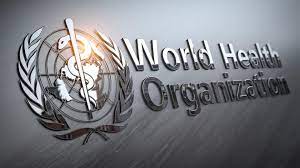
The World Health Organisation (WHO) has warned that Non-Communicable Diseases (NCDs) are among Africa’s greatest development threats, with deaths rising steadily and health systems increasingly burdened across the continent.
W.H.O Regional Director for Africa, Mohamed Janabi, gave the warning Monday in Abuja during the 10th anniversary of the West African Institute of Public Health (WAIPH) and its 2025 conference.
The conference theme, “Digital Innovation and Shared Leadership for Africa’s NCDs Response”, focused on innovative solutions to tackle the growing NCD burden across African nations and strengthen regional health systems for sustainable outcomes.
Janabi, in his keynote address titled “The Silent Epidemic: How NCDs are Threatening Africa’s Development”, said NCDs were advancing rapidly, projected to overtake communicable, maternal, neonatal, and nutrition-related diseases by 2030.
“This is a silent epidemic affecting individuals, families, economies, and health systems across Africa, yet the story of NCDs often remains hidden in clinic records, household finances, and preventable premature deaths,” he explained.
He added that NCDs accounted for 35.4 per cent of all deaths in Africa in 2021, up from 21 per cent in 2000, with cardiovascular diseases, cancers, diabetes, respiratory diseases, and mental conditions.
Janabi highlighted the economic impact of NCDs in Africa, stating productivity losses now exceeded one trillion dollars annually, significantly burdening governments, households, and the private sector, reducing sustainable development progress across the continent.
He said health expenditure on NCDs in Africa remained below 30 billion dollars annually, less than half from domestic sources, leaving countries vulnerable to fluctuating external funding and limiting long-term programme sustainability.
Janabi called for stronger primary healthcare, domestic financing, surveillance systems, access to essential medicines, and integrated, people-centred care to reduce mortality and improve NCD outcomes across African populations.
He noted Africa had made progress in policies and frameworks, adding cervical cancer elimination efforts were advancing, as 32 countries had introduced HPV vaccination to prevent related morbidity and mortality.
WAIPH Director-General, Dr Francis Ohayindo, said climate change was increasingly driving both communicable and non-communicable diseases, altering disease patterns and worsening health outcomes across Nigeria and the wider West African region.
He explained that hotter temperatures increased skin cancer risks, particularly among light-skinned individuals and those who bleached their skin, while changing climates allowed mosquitoes and other disease vectors to migrate into new areas.
Ohayindo said Nigerians faced rising risks of hypertension, diabetes, and stroke due to lifestyle factors, economic pressures, and limited access to preventive care, compounding the NCD burden nationwide.
He emphasised the need for technology integration, stating digital reminders for medication adherence and health promotion messages could make “the difference between life and death” for many patients.



